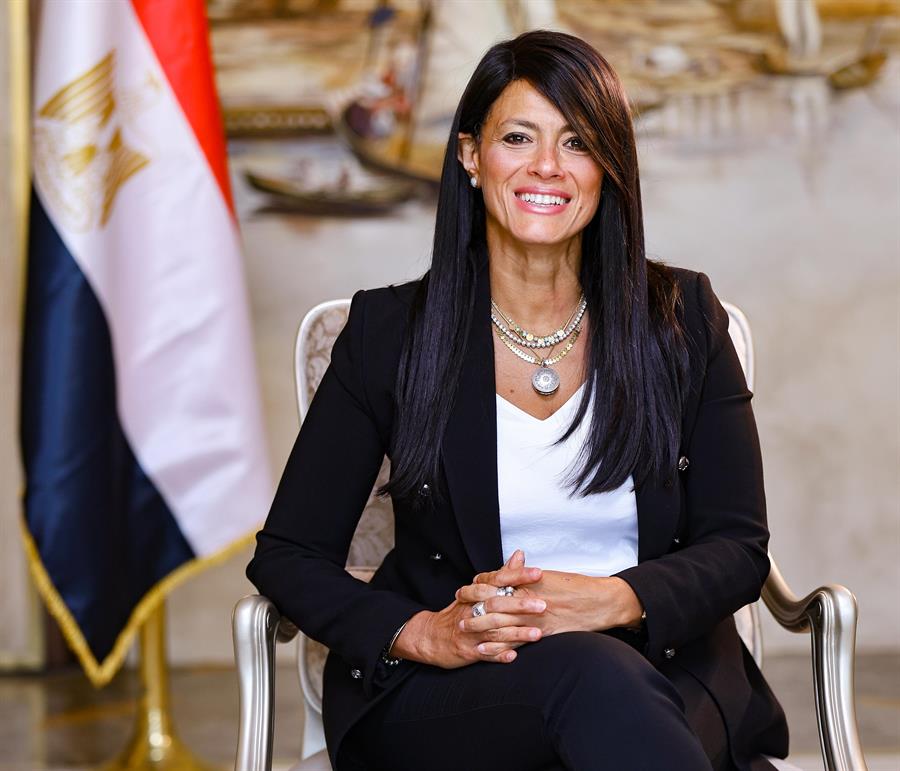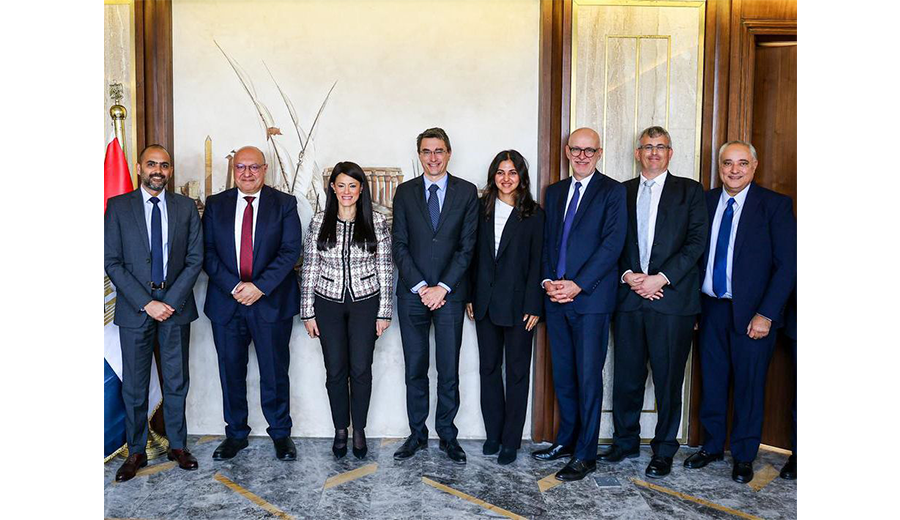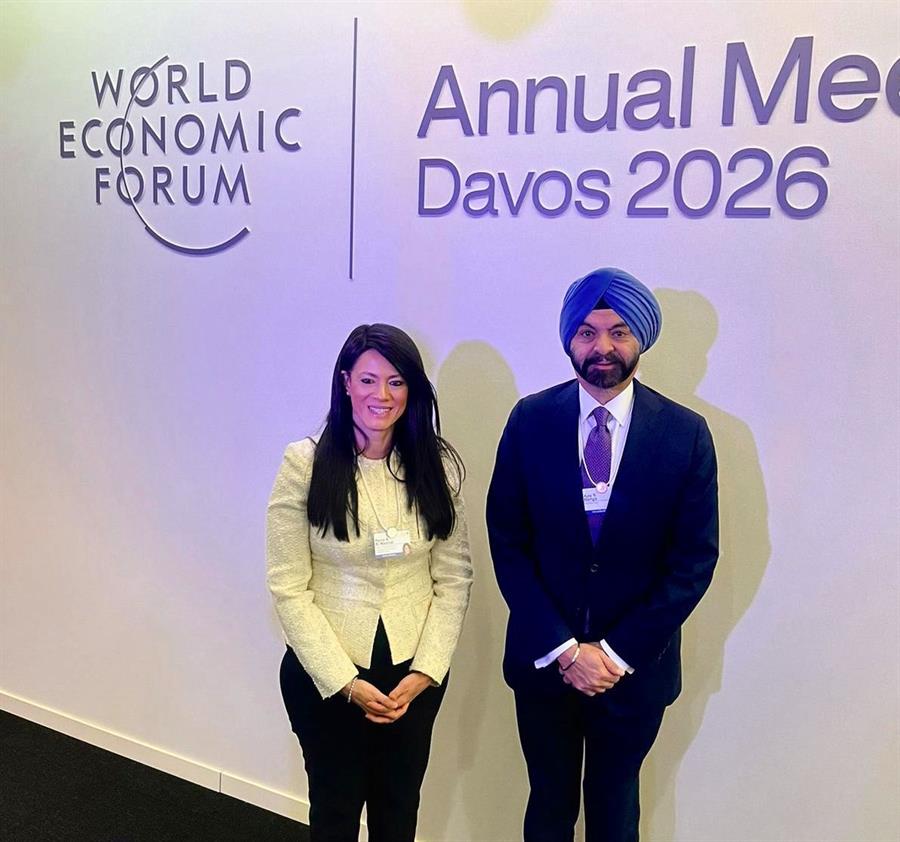Minister of Planning, Economic Development, and International Cooperation Participates in G20 Development Ministers' Meeting on Social Protection and Illicit Financial Flows
26 July 2025
Dr. Rania Al-Mashat: Stimulating multilateral cooperation and country ownership is essential to overcome debt challenges, the high cost of financing, and global economic instability.
Expanding social protection programs and coverage for the most vulnerable is now essential for achieving sustainable and inclusive growth, especially in developing countries.
We commend the G20’s efforts to develop actionable principles to enhance financial transparency and curb illicit financial flows.
Minister Al-Mashat highlights Egypt’s national efforts to strengthen social protection through the “Decent Life” initiative, the “Takaful and Karama” program, and presidential initiatives.
Maximizing the benefits of international partnerships and domestic resources to expand social protection programs in Egypt.
H.E. Dr. Rania
Al-Mashat, Minister of Planning, Economic Development, and International
Cooperation, participated in a ministerial session on social protection and
illicit financial flows during the G20 Development Working Group Ministerial
Meeting.
During the session,
H.E. Dr. Al-Mashat highlighted the importance of bilateral and multilateral
cooperation in advancing the Sustainable Development Agenda, with only five
years remaining until 2030, through the most important international platforms,
the G20, noting that the global slowdown in achieving the Sustainable
Development Agenda, with progress at only 16.7%, due to the estimated financing
gap between $2.5 and $4 trillion annually, which requires diversifying
development financing sources and integrating public and private financial
flows to achieve balance and sustainability.
H.E. emphasized
that financing for development and investments in key sectors is the
cornerstone of sustainable economic and social growth, which necessitates
expanding the scope of application of integrated national frameworks for
sustainability and financing to ensure effective governance, alignment with
national priorities, and improved allocation of domestic resources to priority
sectors. This comes in light of Egypt’s active participation in the 4th
International Conference on Financing for Development in Seville, where Egypt
joined other UN member states in calling for expanding institutional,
technological, and human support for developing countries, including
strengthening financial systems and mobilizing domestic resources.
H.E. highlighted
Egypt’s pioneering role in implementing debt swap programs for sustainable
development in cooperation with friendly countries such as Germany, Italy, and
China, which supported the Egyptian government to convert portions of external
debt into domestic investments in line with national priorities across multiple
topics and sectors, including climate action, education, and social protection.
This positioned Egypt at the forefront of countries applying innovative
financing mechanisms for sustainable development, including blended finance,
public-private partnerships, and investment guarantees.
With regard to
social protection, the G20 Development Working Group committed to prioritizing
social protection through a call to action, reaffirming its commitment to
building inclusive and sustainable social protection systems, with particular
focus on national social protection frontiers. Al-Mashat noted that according
to the International Labour Organization (ILO), social protection programs
cover more than half of the global population; however, around 3.8 billion
people remain not fully covered, there are still significant disparities
persist in social protection between countries, underscoring the urgent need to
scale up sustainable investment in social protection, especially in low- and
middle-income countries.
At the national
level, the Minister of Planning, Economic Development and International
Cooperation affirmed that Egypt has made significant progress in enhancing
social protection through numerous transformative projects and initiatives that
reflect national priorities under Egypt Vision 2030. Among these is the
“Takaful and Karama” program, the most prominent social protection program in
the MENA region, which now reaching over 4.67 million needy households
(approximately 17 million individuals). In 2025, Egypt celebrated a decade
since its launch, underscoring its long-term commitment to social justice and
investment in human capital. Additionally, the flagship “Decent Life” rural
development initiative aims to address multidimensional poverty and
unemployment by improving the livelihoods of poor rural communities, which the
first phase achieved an implementation rate of 85.5% by the end of 2024. Other
programs, such as “Forsa” and “Mastoura,” aim to economically empower women and
youth by providing training, employment opportunities, and interest-free
microloans for small businesses, supporting their transition from cash
assistance to sustainable livelihoods. Furthermore, Egypt has prioritized
health equity through presidential initiatives such as “100 Million Healthy
Lives” for early detection of Hepatitis C and non-communicable diseases and
initiatives supporting women’s health.
H.E. also
highlighted Egypt’s experience in social protection by focusing on
international cooperation and the efficient allocation of domestic and
development resources to scale up social protection programs, which is one of
the most important pillars of comprehensive and sustainable economic
development.
On Illicit
Financial Flows, Al-Mashat commended the efforts under South Africa’s
presidency to develop principles that will form a practical framework for
countries to strengthen financial transparency, data integrity, fair taxation,
and enforcement mechanisms. The Seville Commitment, adopted at the 4th
International Conference on Financing for Development, includes a set of
specific commitments to enhance international cooperation, encourage the
exchange of best practices and technologies, and expand technical assistance to
prevent corruption and support developing countries in identifying money
laundering risks and taking necessary actions.
Moreover, Al-Mashat
affirmed that Egypt has prioritized addressing illicit financial flows as a
part of its integrated national financing strategy as a key pathway to boost
domestic private finance to achieve the SDGs, through three reform areas:
institutions, policies, and capacity-building. Key measures include
strengthening national statistical capacities to measure illicit financial
flows, investing in automated tools to measure trade asymmetries, and
supporting a specialized unit within the Egyptian Customs Authority to tackle
smuggling, money laundering, and risk management. Egypt has also collaborated
with the United Nations to enhance its ability to measure illicit financial
flows, focusing on tax, trade, and crime activities.
It is worth noting
that the G20 is the prominent forum for international economic cooperation, and
plays a critical role in shaping and strengthening global governance in all
major international economic issues. It includes 19 countries in addition to
the European Union and the African Union. Given Egypt’s pioneering experience
as a middle-income country that successfully balanced its national priorities
with leveraging financial tools available at international financial
institutions, Egypt has been invited as a guest country to the G20 since 2016
under various presidencies (China, Japan, India, Brazil, and South Africa). In
2024, under Brazil’s presidency, Egypt attended all G20 meetings throughout the
year, marking its second consecutive year of participation as a guest country.
As of 2025, South Africa extended an invitation to Egypt to participate in
working group and ministerial meetings, with the invitation lasting until the
end of South Africa’s presidency in November 2025.









